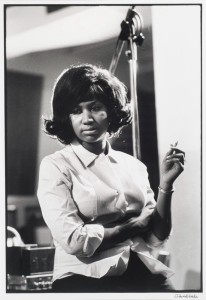 I’m a child of the sixties. Or more accurately, that’s the decade of my adolescence. Curse or blessing, my generation grew up in interesting times. We went from Beaver Cleaver to Easy Rider and Sputnik to the Moon in a little more than a decade. The Times They Are a Changin’ was a fitting anthem for the era. And when Buffalo Springfield sang, “There’s somethin’ happenin’ here, what it is ain’t exactly clear,” they were expressing what was on the minds of most Americans.
I’m a child of the sixties. Or more accurately, that’s the decade of my adolescence. Curse or blessing, my generation grew up in interesting times. We went from Beaver Cleaver to Easy Rider and Sputnik to the Moon in a little more than a decade. The Times They Are a Changin’ was a fitting anthem for the era. And when Buffalo Springfield sang, “There’s somethin’ happenin’ here, what it is ain’t exactly clear,” they were expressing what was on the minds of most Americans.
Popular music was riding the crest of that wave of change. We were already all shook up coming out of the fifties and were headed to the Electric Kool-Aid Acid Test. One of the best parts of this long strange trip was the mainstreaming of Black music. The radio stations in my little Western Minnesota town exposed my to the joy of soul music, and that shaped my musical taste for life.
I recently watched the documentary Muscle Shoals, the story of the Muscle Shoals Sound and the tiny Northwestern Alabama town on the Tennessee River where some of the best of that Black music was recorded. Percy Sledge, Wilson Pickett, Aretha, Joe Tex, Clarence Carter and the list goes on all recorded there. And I drove around Moorhead in our Chevy wagon with the windows down and fell in love with Soul. Black Music.
But here’s the catch. The core band in those recordings, The Swampers, were rural small town white guys. George Wallace was the governor, segregation was in full swing and right there in Alabama Blacks and Whites were collaborating to make musical history. The artists themselves were surprised and sceptical when they saw the musicians who they were going to be working with, but the thing is, art transcends. There isn’t Black music or White music, just music.
Aretha was recording for Columbia, there was no question that she had a voice for the ages, but her records weren’t selling. They were recording in New York, with the best musicians available, real pros, reading from charts created by accomplished arrangers, professionals who were nailing down every detail as if they were preparing a Mozart symphony. And the records fell flat.
So Columbia let her contract lapse and she signed with Atlantic and Jerry Wexler and he sent her down to Muscle Shoals to record. I’m pretty sure that at least some of The Swampers couldn’t read music. Aretha played the songs for them on the piano and they picked it up, improvising their parts and refining them under the guidance of Jim Hall the studio owner and producer until they got it grooved and they had a hit. Aretha is interviewed in the film and she describes the music as “greazy.”
There’s a lot more to the story and the movie does a beautiful job of telling it. I recommend it highly to anyone with an interest in music and the history of American pop culture.
